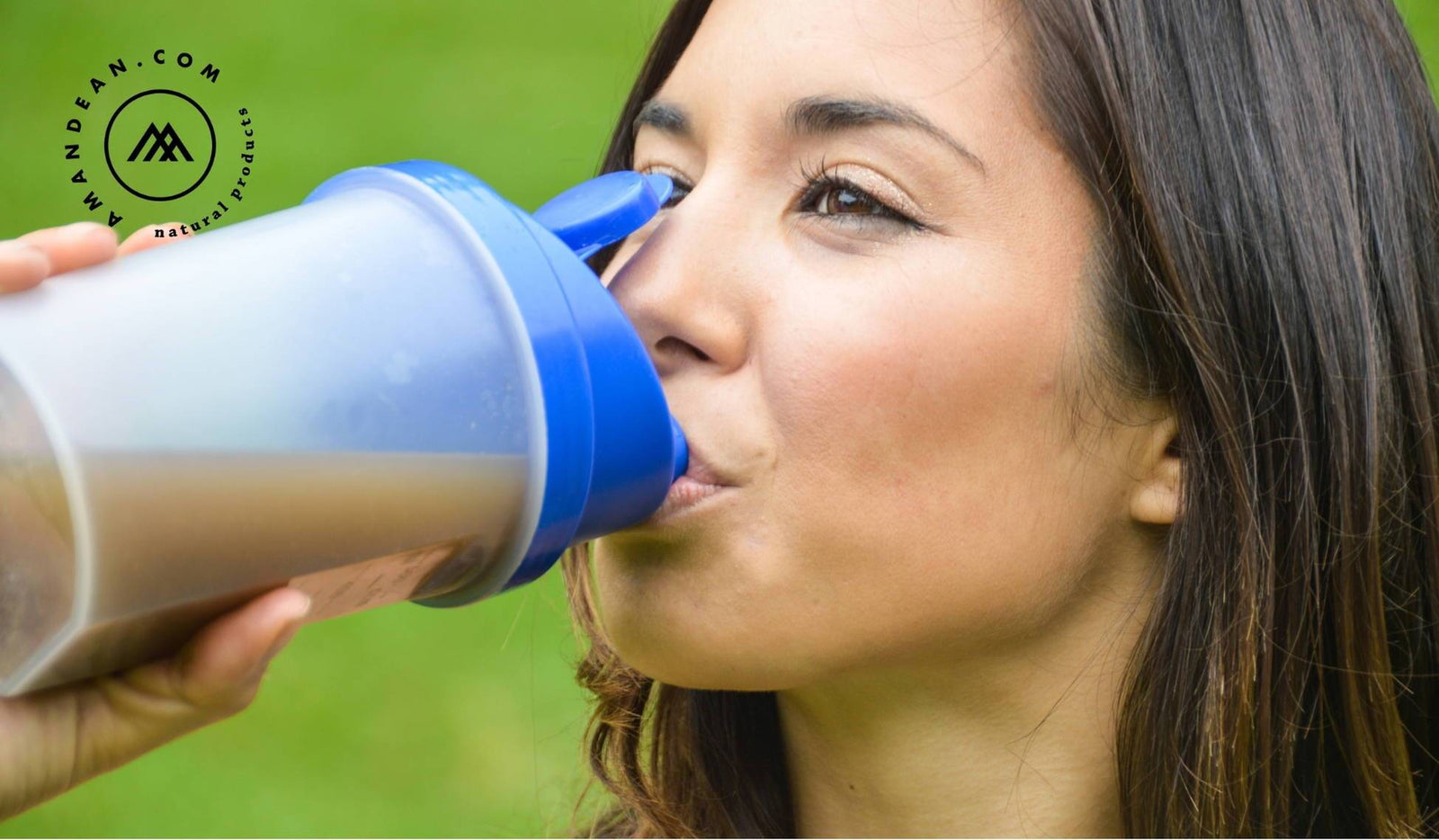Your Cart is Empty

June 01, 2021 5 min read
In recent years, collagen has become a sort of "buzzy" component of skincare products and cosmetic procedures. But if you thought it was some sort of miracle, man-made ingredient you can slather on your skin for a glowingly youthful appearance overnight, sorry to let you down! Collagen is and can do much more, but the trick is stimulating collagen production from the inside out, not from the outside in.

Collagen is the most abundant protein in the human body. Many people picture it as building blocks or scaffolding; it provides structural support and volume for all our connective tissues, including the skin. Many hallmarks of the aging process are the result (at least in part) of a decrease in collagen production. Up until our mid-twenties, our bodies are producing collagen left and right! Then, sun exposure, free radicals, and age start to catch up. Slowly but surely, volume loss and sun damage result in crow's feet, frown lines, wrinkles, sun spots, pigmentation, and fine lines. Now that the world of dermatology is much more aware of the importance of collagen for our appearance and wellbeing, we are able to take a more preventative rather than a treatment-based approach to aging. By using collagen supplements to increase our own bodies' natural collagen production, we can shift from skin rejuvenation to prejuvenation.

Collagen prejuvenation started as a theory and now is rooted in scientific evidence. It postulates that if we can load up our collagen stores in our mid 20s to early 30s, we may be able to prevent or push back the aging process. Collagen prejuvenation is often called “collagen banking” or “collagen loading”. Collagen fibrils get packed into the dermis, plumping the skin and boosting elasticity. It's a pre-planning approach to avoid dermal fillers, botox, and microneedling procedures in the future; more collagen now, more collagen later when you really need it.
Increasing your collagen supply can be accomplished in many ways through skin treatments, preventative measures, and adding more to your diet. Here's how it works.
While collagen skincare products have proven to be ineffective (the protein is too big to be absorbed by the skin), there are other "side-kick" products you can use to boost collagen as well as procedures that stimulate new collagen production.


So is it necessary and is it worth it? It all depends. Many millennials are beginning to explore prejuvenation methods to hold onto their youthful glow and stave off wrinkles. For the more cost-conscious consumer, high-quality collagen supplements, retinol, and good ol' sunscreen is likely your best bet to both prevent collagen degradation and encourage collagen synthesis. This method also comes with far fewer side effects and risks. For the younger patient who wants to add a bit more umph to their anti-aging arsenal, consider speaking to a dermatologist about which procedure is right for you. No matter which route you choose, remember to keep it up! Collagen prejuvenation is useless without constant reinforcement throughout your early 30s and beyond.
Collagen prejuvenating postulates that if we can load up our collagen stores in our mid 20s to early 30s, we may be able to prevent or push back the aging process.
Collagen-boosting dermal fillers are an injectable procedure that instantly fills in fine lines and leaves skin looking plump and fresh.
Also called “micropenning" or “collagen-induction therapy”, microneedling is a minimally invasive treatment that stimulates collagen production by triggering micro-injuries in the skin.
Glutathione is considered the body's master antioxidant and can easily be added to your daily diet without adding a step to your skincare routine.
If you decide to undergo a cosmetic procedure, adding a scoop of collagen powder to your morning coffee may improve or prolong the effects.
Take our quiz and find which supplements your body is craving.


October 17, 2025 8 min read
Find out why creatine is better for vegans! Boost your wellness game and unlock peak performance with Amandean's premium supplements today.

October 16, 2025 7 min read
Learn whether collagen in coffee is just another wellness fad. Examine the facts, benefits, and how to use collagen in coffee for beauty and joint support.

September 22, 2025 9 min read
Unlock the full benefits of creatine for women. Boost energy, beauty, and brainpower with Amandean’s clean formulas.